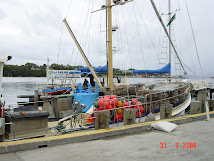Invest in Singapore Properties: Sibor or SOR rates
by: Property Buyer Home loans
If you are investing in Singapore properties and you want to know how safe is your cash flow? What can affect your property investing cash flow?
Rental rates can affect your revenue while the underlying Borrowing costs determined by Sibor and SOR can affect your Cost.
Which is safer? SIBOR rates or SOR rates?
In order to know the answer, we need to dwell deeper into how Sibor and SOR works in Singapore.
Setting Interest rate targets in USA and Singapore?
The USA is united from many states. There is a federal government and the state government. As the Federal government has certain rights and controls while the local government the others.
Therefore, the federal reserve uses rougher policy tools such as using interest rates to control inflation and regulate growth for the country while the local government does it's part.
Singapore on the other hand is small. The Singapore government can micro-manage. When the economy heats up and Consumer Price index (CPI) rises, instead of raising interest rates to control inflation, Singapore could raise it’s currency value against a trade weighted basket of currencies.
This reduces the prices of imports as the Singapore dollar strengthens. This has the effect of lowering inflation for Singapore citizens. However this also impacts certain industries which relies on exports.
SO DOES SINGAPORE GOVERNMENT SET AN INTEREST RATE TARGET?
Singapore’s interest rates are consistently set low. Though we are not sure “SET” is the right word. There are many factors including the liquidity of banks in Singapore which helps “SET” the interest rate environment.
Banks that are flushed with cash from depositor’s funds or it's own capital will release unused funds it into the Singapore Inter-bank market, made available to be borrowed by other financial institutions, for a small interest rate charge of course.
The rate is called, the Singapore Inter-bank offered Rate (SIBOR). This is the rate at which the banks lend to each other. Sibor is traded and published in the Association of banks of Singapore (ABS).
SOR is the Swap offered Rate also traded on the Association of Banks of Singapore.
SOR is a Swap. Swaps are basically derivatives contracts. These contracts are traded at a fairly high volume between the banks and financial institutions in Singapore.
SOR or Swap offered Rate is a benign form of Derivative which involves the US dollar and the Singapore dollar where banks trade with each other to borrow the funds. And the borrowed funds carry an interest rate. SOR is determined this way. Swap contracts behave a little like a share in a stock market.
Singapore’s interest rates are consistently lower than that of the US and that of Australia. This ensures that Gross Fixed capital formation is maintained at a higher level of which a significant portion goes into investment. Such as that of plant, machinery, software, etc. All of which could significantly enhance the long term productivity and efficiency of the Country.
Low Sibor and SOR rates drive investment driven inflation?
Singapore is not immune to inflation. However, due to the various policies tools at the disposal of the Singapore government, it can selectively target industries that are over-heating by imposing levies, taxes or restrictions while leaving the other industries which are not over-heating to continue to grow.
Thus Singapore’s micro-managed economy can maintain a higher growth rate due to long term lower interest rates driven by investments.
Australia's housing loans Interest rates are Crazy
Will Singapore’s interest rates reach the levels seen in Australia and US? It is hard to say whether Singapore will ever reach those rates seen in Australia or the USA, but on a comparative basis, Singapore’s interest rates tend to be lower than those in Australia and the USA.
Why will Singapore’s Sibor or SOR rates rise?
In most modern economies, credit is well developed. What this means is, when there are investments or economic activities, funds are being used up. For example, a project that costs $600 million may need financing of at least 60% of that fund.
That means the company who invests in that project only comes out with capital of $240 million while borrowing $360 million. Even the company’s investment of $240 million may also come from issuing shares or bonds of the company, leaving the actual capital of the investment lesser than $240 million.
In other words, investments deplete the funds available for lending into the Singapore inter-bank market. This leads to an investment activity based and economic expansion based rise of rates.
The other instance is when there are major economic shocks where we do not know how much are the banks exposed to these shocks. In such a scenario, each bank will view the other one with suspicion as they do not know whether they will get back their money if they leave lend it out. In such a scenario, the SIBOR or SOR rates move up very quickly. In such scenario, it is expected that the Singapore Government would intervene to provide the liquidity of the last resort, thereby stabilizing the market.
So it is safe to say, when investment grows, funds are sucked up because most investments are still credit driven in a developed economy like Singapore.
For Investors looking to invest in Singapore properties, it is important to understand the Singapore government's interest rate policy levers to estimate if you will be able to afford your Property loans in the coming future.






